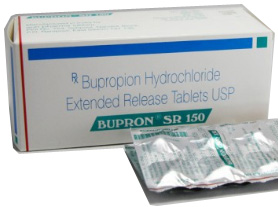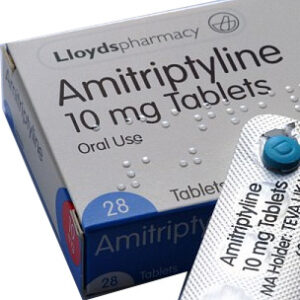Cymbalta is a prescription medication that belongs to a class of drugs called serotonin-norepinephrine reuptake inhibitors (SNRIs). It is primarily used to treat major depressive disorder, generalized anxiety disorder, fibromyalgia, and chronic musculoskeletal pain. Cymbalta works by increasing the levels of certain chemicals in the brain that help improve mood and reduce pain signals.
This medication is available in the form of delayed-release capsules in various strengths, including 20 mg, 30 mg, and 60 mg. It should be taken orally once daily, with or without food, as directed by your healthcare provider. The dosage may vary depending on the condition being treated and individual response to the medication.
Cymbalta is not suitable for everyone and should only be taken under the supervision of a healthcare professional. It is important to discuss any existing medical conditions, allergies, or medications you are taking with your healthcare provider before starting this medication. Common side effects may include nausea, dizziness, dry mouth, constipation, and fatigue.
If you experience any severe or persistent side effects, it is important to seek immediate medical attention. It can take several weeks for this medication to take full effect, so it is important to continue taking it as prescribed, even if you start to feel better. Suddenly stopping Cymbalta can cause withdrawal symptoms, so it is important to gradually reduce the dosage under the guidance of your healthcare provider.
Cymbalta has the potential to interact with other medications and substances, so it is important to inform all healthcare providers about the medications you are currently taking. Avoid consuming alcohol while taking this medication, as it may increase the risk of liver damage.
Do’s and Don’ts
- Do:
- Take Cymbalta as prescribed by your healthcare provider.
- Discuss any existing medical conditions, allergies, or medications with your healthcare provider before starting this medication.
- Report any severe or persistent side effects to your healthcare provider.
- Continue taking this medication as directed, even if you start to feel better.
- Gradually reduce the dosage under the guidance of your healthcare provider when discontinuing Cymbalta.
- Don’t:
- Stop taking Cymbalta suddenly without consulting your healthcare provider, as it may cause withdrawal symptoms.
- Consume alcohol while taking Cymbalta, as it may increase the risk of liver damage.
- Take Cymbalta if you are allergic to duloxetine or any other ingredients in the medication.
- Take Cymbalta if you have used a monoamine oxidase inhibitor (MAOI) within the past 14 days.
- Take Cymbalta if you have severe liver disease or uncontrolled narrow-angle glaucoma.
Managing Side Effects
As with any medication, Cymbalta can cause side effects. Common side effects may include:
- Nausea
- Dizziness
- Dry mouth
- Constipation
- Fatigue
If any of these side effects persist or worsen, it is important to notify your healthcare provider. They may be able to provide guidance on how to manage these side effects or adjust the dosage if necessary. Additionally, your healthcare provider may recommend lifestyle changes or other interventions to help alleviate these side effects.
Serious side effects are rare but can occur. If you experience any of the following, seek immediate medical attention:
- Allergic reactions (e.g., rash, itching, swelling)
- Unusual bleeding or bruising
- Severe dizziness or fainting
- Severe stomach pain or black/tarry stools
- Changes in sexual desire or ability
How to Take It
Cymbalta should be taken as directed by your healthcare provider. The medication is typically taken once daily, with or without food. The delayed-release capsules should be swallowed whole and should not be crushed or chewed. It is important to take each dose at the same time each day to maintain a consistent level of the medication in your body.
If you miss a dose, take it as soon as you remember. If it is close to the time for your next dose, skip the missed dose and resume your regular dosing schedule. Do not double the dose to make up for a missed one. It is important to follow the instructions provided by your healthcare provider regarding missed doses.
In case of overdose, seek immediate medical attention or contact a poison control center. Symptoms of overdose may include nausea, vomiting, drowsiness, seizures, and rapid heartbeat.
Cymbalta Compatibility
Cymbalta has the potential to interact with other medications, so it is important to inform all healthcare providers about the medications you are currently taking. Some common medications that may interact with Cymbalta include:
| Medication | Type of Interaction |
|---|---|
| Warfarin (blood thinner) | Increased risk of bleeding |
| Monoamine oxidase inhibitors (MAOIs) | Increased risk of serotonin syndrome |
| Nonsteroidal anti-inflammatory drugs (NSAIDs) | Increased risk of bleeding |
| Cimetidine (acid reducer) | Increased levels of Cymbalta in the blood, potentially leading to side effects |
| Tricyclic antidepressants | Increased risk of serotonin syndrome |
This is not a complete list of medications that may interact with Cymbalta. It is important to consult your healthcare provider and pharmacist to ensure the safe and effective use of this medication.
Q&A
-
Q: Can Cymbalta be used to treat anxiety?
A: Yes, Cymbalta can be used to treat generalized anxiety disorder. -
Q: How long does it take for Cymbalta to work?
A: It may take several weeks for Cymbalta to take full effect. It is important to continue taking it as prescribed, even if you start to feel better. -
Q: Can I drink alcohol while taking Cymbalta?
A: It is not recommended to consume alcohol while taking Cymbalta, as it may increase the risk of liver damage. -
Q: Can I stop taking Cymbalta suddenly?
A: No, it is important to gradually reduce the dosage under the guidance of your healthcare provider when discontinuing Cymbalta to avoid withdrawal symptoms. -
Q: What should I do if I miss a dose of Cymbalta?
A: If you miss a dose, take it as soon as you remember. If it is close to the time for your next dose, skip the missed dose and resume your regular dosing schedule. Do not double the dose.






Reviews
There are no reviews yet.